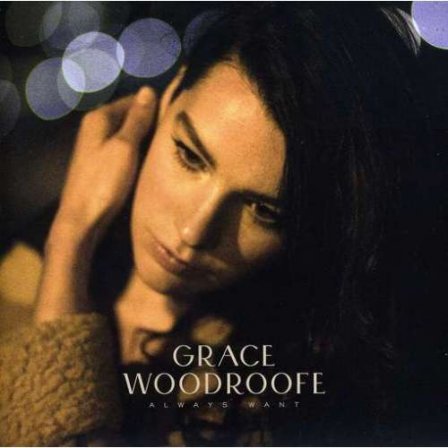When I saw that the first three words of the press release for Always Want were “Australian folk-blues chanteuse,” my testicles crawled back up inside me. Visions of some awful repeat of the Ursa Minor debacle danced before my eyes like a flashback to some wartime atrocity. But while Grace Woodroofe’s debut wouldn’t exactly sound out of place sandwiched between Nora Jones and Califone on a Muzak Holdings LLC playlist, the young songwriter manages to side-step the biggest pitfalls of “folk-blues” pigeonholing to deliver a surprisingly diverse and engaging record.
The serene melancholy of “I’ve Handled Myself Wrong” sounds about like what you’d expect from album such as this: a slow, somber meditation on regret that plays a gentle acoustic guitar figure against a jazzy bassline and some more spacious electric guitar vibrato. It shows off Woodroofe’s voice to good effect, a surprisingly vibrant and husky instrument that sounds much older than her twenty-some-odd years of age. From there, though, the album takes a sharp detour into some unexpected territory. “Battles” opens to an alien landscape of hand-bells and bleached piano samples. Add some surprisingly nimble drumming and you end up with a chilly atmosphere that nearly veers into trip-hop territory. And while blues rock tracks on albums such as this tend to be awkward, embarrassing affairs, “Transformer” and “Nocturnal” both carry a pleasing heft that sets them above the standard fair.
The back half of the record, however, is where things get really interesting. The title track brings back the hand- bells for a down-tempo ode to unrequited love punctuated by unexpected eruptions of distorted bass and kick-drum. “You’ll Never Find Me” chucks out all the other instrumentation and lays Woodroofe’s crystal clear vocals over a flat recording of a repetitive piano figure with an audible tape hiss. Round that off with the album’s most unabashed rocker, the PJ Harvey-esque “Bear,” and you have a particularly fertile and unpredictable stretch of music.
But while Woodroofe clearly has some very exciting ideas musically, it’s clear that she has some work to do in refining her lyrics. The aforementioned “Battles” is a prime example. The first-person account of a middle-aged waitress’s inner turmoil is compelling in concept, but the brushstrokes Woodroofe uses to paint her portrait just don’t come together like they should. Lines like “I tell my daughter that I’m method acting” and “Next time I’ll put poison in his takeaway pack” ring false, and, while I know little of Woodroofe’s background, they seem more like an affluent person’s conception of blue collar angst than a genuine depiction of working-class struggle. Her ode to Heath Ledger, her one-time patron who directed the video for her cover of David Bowie’s “Quicksand,” is similarly murky. The note of personal loss and tragedy lends the song an undeniable sincerity and authenticity, yet there’s still a woodenness to some of the language that pulls me out of the moment. Lines like “I would give anything to smell your cigarettes burning/ ‘Cause your words were passive when you spoke” seem like they were dictated more by the song’s rhyme scheme than its content.
Despite its shortcomings, Always Want is a debut that shows considerable promise and a willingness to test the boundaries of the singer-songwriter framework. Although she’s been honing her craft for well over half a decade, Woodroofe is still young, and her ability to find the right words to bring a scene to life will likely improve with maturity and experience.
More about: Grace Woodroofe

